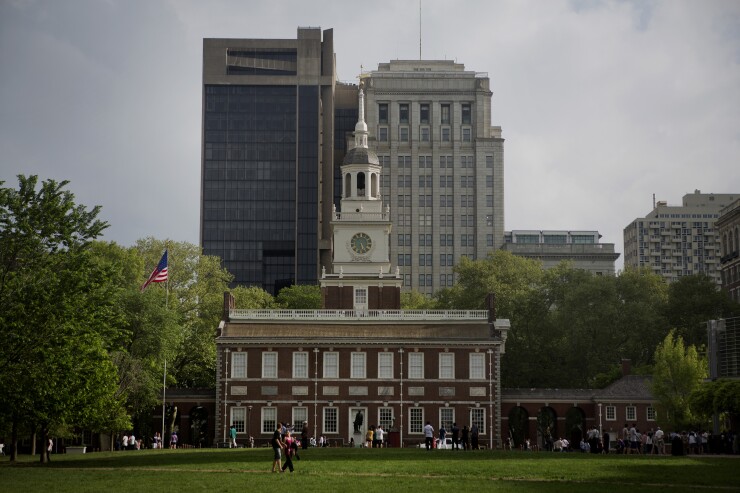The first full year of Philadelphia soda tax collections came in $12.2 million below projections, forcing the city to revise its long-range revenue forecast for future budgets.
The newly enacted 1.5 cents-per-ounce tax on sugary beverages that went into effect Jan. 1, 2017 brought in $78.1 million for the year, 13% below the city’s $91 million projection. City spokesman Mike Dunn said the Philadelphia will revise future projections and that the fiscal impact is still being determined as Mayor Jim Kenney plans his March 1 budget address. Philadelphia’s initial long-range budget forecast projected $450 million from the tax over a five-year period.

“It’s important not to buy in to the beverage industry’s attempt to portray these collections as a failure,” said Dunn. “The City raised $78.8 million in the first 12 months of the tax – just over 85% of the original projection and that is money the City would not have had were it not for the tax.”
Dunn said the beverage tax has still aided the city’s goal of expanding pre-kindergarten and upgrading infrastructure. The city is planning to use some revenue from the tax to back $300 million in bonds this year for improvements to parks, libraries and recreation centers. Dunn said the borrowing is on hold pending the outcome of
Former Philadelphia City Controller Alan Butkovitz released
“That means Philadelphians are buying less soda but still spending the same amount in their local stores,” said Dunn. “That’s great news for public health as well as for our retailers.”
Philadelphia general obligation bonds are rated A2 by Moody’s Investors Service and A-plus by S&P Global Ratings and Fitch Ratings. Pennsylvania’s largest city had $1.5 billion in outstanding GO debt in late 2017, according to Moody’s.





